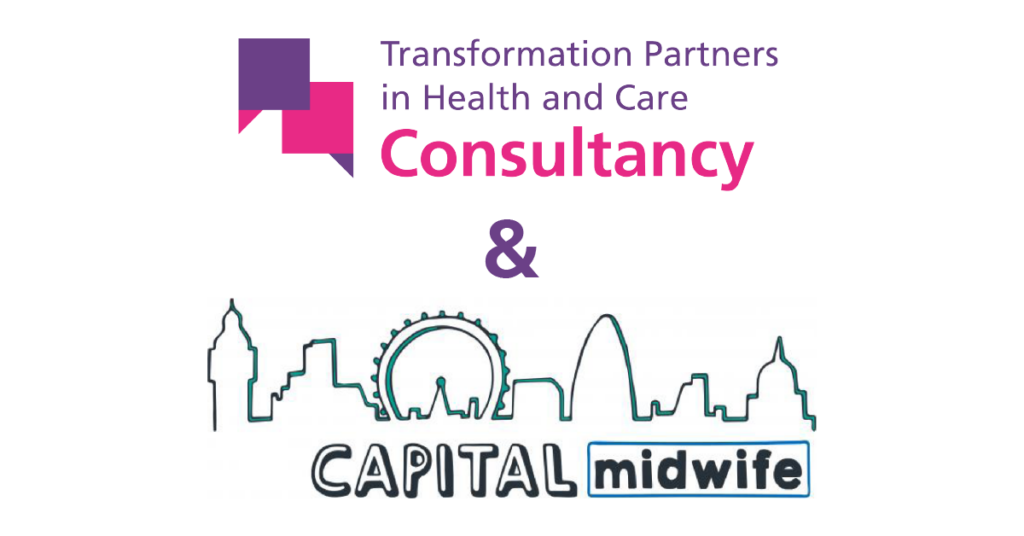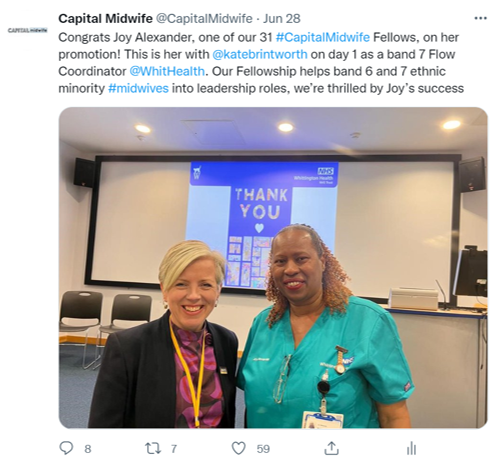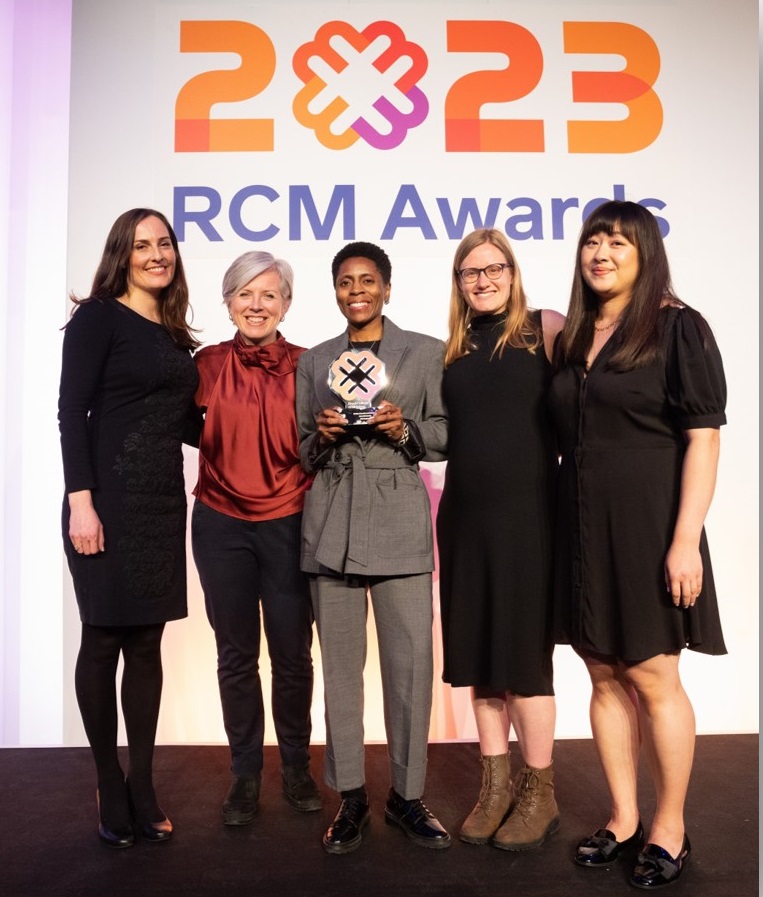
By Esther Dodd and Zoe Hooper
The Darzi review highlights important concerns about NHS maternity care in England. While there has been a reduction in stillbirths and a small reduction in neonatal mortality and serious brain injuries, maternal deaths have increased since the pandemic and, most worryingly, there are huge inequalities. Between 2020 and 2022, Black women were almost three times as likely, and women from Asian ethnic backgrounds almost twice as likely as white women to die in childbirth – Darzi review Technical Annex (PDF). Furthermore, in the first 28 days of life, more than twice as many babies die in the most deprived 20% of areas as in the least deprived.
High rates of sickness absence – 22 days per midwife per year across the NHS as a whole, which equates to one working month each – indicate that midwives are struggling. And a persistent finding from what the review calls ‘a succession of scandals and subsequent inquiries’ is that previous recommendations have not been universally adopted.
Yet, with record numbers of midwives and fewer births, recent data show fewer deliveries per midwife in England than 15 years ago (25.8 in 2022 compared to 34.7 in 2007) and than in France, Germany or Spain. So, what is going wrong?
Addressing culture issues within maternity services
The Darzi review included a submission from Dr Bill Kirkup, former Associate Chief Medical Officer for England, who led the investigation into maternity services in east Kent. He identified deep cultural issues within maternity services that are jeopardising patient safety.
Dr Kirkup identified that maternity staff face immense stress, which impacts morale and is leading to burnout and high staff turnover rates. Clinical Director roles are ill-defined and poorly supported, teamwork is impaired by training being carried out in silos, and unstable working patterns and a lack of space for maternity staff to rest and recharge contribute to the cultural problems. These can include transgressive behaviour (more common than is admitted, he said), varying levels of compassion, and fear of blame rather than a patient-centred approach when a safety incident occurs. Dr Kirkup was clear that burnout, absenteeism, and the loss of trained staff impair patient safety.
These challenges are exacerbated by increasingly complex pregnancies, with fewer than half of women spontaneously going into labour compared to 70% in the early 2000s.
Labour has pledged to train thousands more midwives as part of the NHS Workforce Plan, however, the Darzi review is clear that capacity alone is not the constraint on improvement.
What should be done?
The Darzi review calls for time, attention and focus to solve the issues described by Dr Kirkup. At Transformation Partners in Health and Care, we have significant experience in supporting the maternity system in London to transform the culture for midwives and patients alike.
Case study: CapitalMidwife
Since the programme’s inception in 2019, TPHC has partnered with CapitalMidwife, which develops ‘once for London’ solutions to the challenges faced by the approximately 5,000 midwives who make up the London midwifery workforce. These challenges include staff shortages, increased workloads, retention of staff and policy changes. They impact on the culture of maternity services, and on care for patients.

The programme focuses on working with the midwifery workforce to co-design solutions to the challenges they face, and ultimately improve the experience and outcomes for the people they care for.
The COVID-19 pandemic cast a spotlight on historic, endemic inequalities faced by NHS global majority maternity staff, which range from a lack of global majority staff in leadership roles, to poor access to continued professional development, and more.
In response, we supported CapitalMidwife to set up an Equality, Diversity and Inclusion Advisory Group which included the authors of the Turning the Tide report and What We Need to Thrive report (PDF). The group designed and oversees the Anti-Racism Framework and Fellowship scheme described below.
Fellowship Programme

The Fellowship aims to help Band 6 and 7 midwives from global majority backgrounds to develop and move into leadership roles; build their confidence, knowledge and skills; and develop a network to support them throughout their careers.
Band 6 and 7 global majority midwives from across London were invited to apply for a Fellowship. Priority was given to people from ethnic groups that report in the NHS Staff Survey being given fewer opportunities to progress in their careers, and to those who had been in the same role for a long period of time. Over six months, they were given training in wellbeing, leadership skills, quality improvement and giving presentations; were part of learning and coaching groups; and were encouraged to be mentored.
Impact
The results were outstanding: 100% of Fellows reported being able to apply Fellowship learnings in their workplaces and 43% of Fellows moved into a more senior role during, or within 12 months of completing their Fellowship. Since then, two further Fellowships have been run, each with similarly impressive results.
Almost 90 global majority midwives across London have now completed the Fellowship, developing a strong base of well-connected future leaders for London’s maternity services. The Fellowship was championed by the national NHS maternity team and is being used to inform similar work across the country.
This quote from a participant shows the impact it had on them:
“This Fellowship has improved my confidence massively. I now feel ready for a leadership role. I have applied for 3 posts and interviewed for one yesterday. Without this Fellowship and the support of (named person), I wouldn’t have felt confident to apply, let alone go for the interview.”
Anti-Racism Framework
The Anti-Racism Framework aims to broadly address racism in the London maternity workforce, reducing its impact, and also to shift the culture to improve outcomes for global majority maternity patients. It provides hospital trusts with a structured approach and a wide range of tools to build and sustain an anti-racist culture. The framework is linked to and supports wider policies and guidance, including the national Maternity Transformation Programme and Workforce Race Equality Standard (NHS People Plan). It has been refined through work with Vanguard sites.
It outlines nine initiatives to create anti-racist maternity services, including ensuring global majority staff are in leadership and advisory roles, and that bias is removed from recruitment. An award scheme from bronze to platinum recognises progress made by trusts at the different stages of implementation.
Impact
Two out of 18 maternity trusts in London have received a bronze award and are now working towards silver. One trust has submitted its documentation for bronze level assessment and two more trusts are on course to submit by the end of 2024. The remaining trusts are steadily working towards bronze. Initial feedback suggests that bringing together a multi-ethnic group of stakeholders to implement anti-racist initiatives and having a safe space to discuss racism has been beneficial to staff.
A survey of staff implementing the framework showed 100% believed colleagues from global majority communities could benefit from the framework, would recommend it to other trusts, and saw positive impacts in their organisations.
Awards
Kate Brintworth, Chief Midwifery Officer for NHS England, won the Royal College of Midwives’ 2023 award for equality, diversion and inclusion for the Anti-Racism Framework and Fellowship in her previous role as Regional Chief Midwife for London.
Transformation Partners in Health and Care, which supported the work, and the NHS England London regional maternity team were shortlisted for HSJ Workforce Initiative of the Year 2023.

CapitalMidwife has made a huge impact on London’s maternity workforce driven by the leadership and contribution of hundreds of midwives across the capital who we thank and continue to support.
Find more about our Consultancy service here, including examples of how we can support you to achieve your goals.

